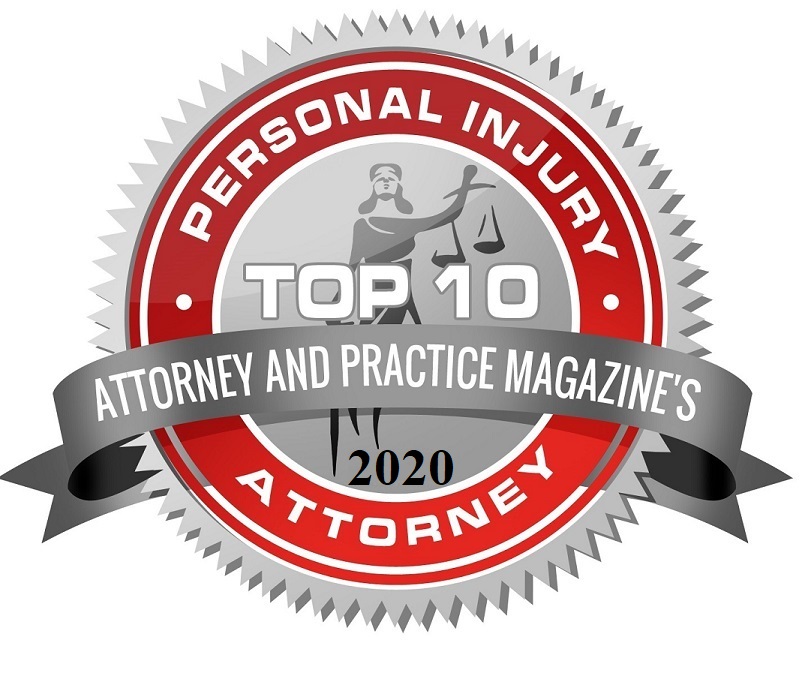When you’re involved in a rideshare accident in Florida, the physical injuries you may suffer are often obvious. However, emotional distress can be just as real and harmful, even though it might not be visible. Emotional distress can take a toll on your mental and physical well-being, causing anxiety, fear, and even long-lasting trauma. If you’ve been hurt in a rideshare accident, you may wonder if it is possible to claim damages for the emotional distress you have experienced. In Florida, the law recognizes emotional distress as a valid form of injury under certain circumstances. This means that if you were in a rideshare accident, you could seek compensation for the emotional harm you suffered, just as you would for physical injuries. At, Serrano Law , we are here to guide you through the legal process and help you navigate the complexities of your case.






Understanding how emotional distress works in the legal system can be challenging, especially since it involves non-physical damages. If you are unsure of what steps to take after experiencing this kind of harm, knowing more about your legal rights in Florida is essential. While emotional distress claims are not always straightforward, having a clear understanding of the law can help you seek the justice you deserve.
Emotional Distress in Rideshare Accidents
Emotional distress refers to the mental suffering that results from an accident or traumatic event. In the case of a rideshare accident, this might mean developing a fear of riding in cars, feeling overwhelmed by anxiety, or even experiencing post-traumatic stress disorder (PTSD). These feelings can impact your daily life, making it difficult to return to normal activities or even to enjoy life the way you did before the accident.
In Florida, emotional distress is recognized as a form of harm that victims can recover compensation for. However, the law does set specific requirements for proving emotional distress. Unlike physical injuries, which can be documented through medical records and doctor’s reports, emotional injuries are often more difficult to measure. This can make emotional distress claims more complex, as you will need to show that your mental suffering is real and directly connected to the accident.
In rideshare accidents, proving emotional distress may involve showing how the accident impacted your mental health. This could include seeking therapy or counseling, taking medications for anxiety or depression, or demonstrating that your emotional state has affected your ability to work, sleep, or maintain relationships. Emotional distress claims are not limited to the passengers in the rideshare vehicle. If you were a driver or pedestrian involved in the accident, you could also be eligible to seek damages for emotional suffering.
Proving Emotional Distress in Florida
Proving emotional distress is often one of the more challenging aspects of an accident claim. In Florida, emotional distress is considered an “intangible” harm, which means it is not as easily quantified as medical bills or lost wages. To make a successful emotional distress claim after a rideshare accident, you will need to demonstrate that your emotional suffering is significant and that it directly resulted from the accident.
Florida courts typically require that emotional distress claims are accompanied by physical injuries or other forms of concrete harm. This means that if you were physically hurt in the rideshare accident, it may be easier to also claim emotional distress. However, if you were not physically injured, you may still be able to make a claim, although it might require additional evidence.
For example, if the rideshare accident was especially traumatic or involved reckless behavior, this could strengthen your emotional distress claim. Having documentation from mental health professionals, such as psychologists or therapists, can also help prove your emotional suffering. These professionals can provide valuable testimony about the impact the accident had on your mental health and how it has affected your ability to function normally.
Damages for Emotional Distress
If you are successful in proving emotional distress, the damages you can recover are intended to compensate you for the mental suffering and disruption to your life. Emotional distress damages can include compensation for anxiety, depression, fear, sleeplessness, and the overall loss of enjoyment of life. In some cases, emotional distress may also lead to physical symptoms, such as headaches, nausea, or difficulty breathing, which can further complicate your recovery.
The amount of compensation you can receive for emotional distress will depend on the severity of your suffering and the impact it has had on your daily life. In Florida, the courts consider several factors when determining how much compensation to award. These factors may include the length of time you have been dealing with emotional distress, whether you have sought professional help for your condition, and how your mental health has affected your relationships or ability to work.
It is also important to remember that emotional distress damages are meant to make you whole again, not to punish the other party. This means that the focus of these damages is on providing you with the financial support you need to recover, rather than on punishing the rideshare company or driver responsible for the accident.
The Role of Insurance in Rideshare Accidents
One of the complexities in rideshare accident cases involves dealing with the insurance companies. In most rideshare accidents, the driver is covered by a combination of their personal insurance policy and the rideshare company’s insurance. The amount of coverage available may vary depending on the circumstances of the accident, such as whether the driver was actively transporting a passenger at the time of the crash.
When it comes to emotional distress claims, dealing with the insurance companies can be particularly tricky. Insurance companies are often hesitant to offer compensation for non-physical damages like emotional distress, as these claims can be harder to quantify. However, with the right legal guidance, it is possible to negotiate a fair settlement that includes compensation for your emotional suffering.
Choosing The Right Personal Injury Attorney Personal Injury Settlement TimelineRelated Videos
It is important to act quickly when filing a claim for emotional distress after a rideshare accident. Florida has a statute of limitations that sets a time limit on how long you have to file a personal injury claim. If you wait too long, you may lose your right to recover compensation for both your physical and emotional injuries.
Filing a Claim for Emotional Distress
Filing a claim for emotional distress after a rideshare accident in Florida can be a complex process. It requires careful documentation and often involves negotiations with insurance companies. Working with a legal team experienced in handling rideshare accident cases can help ensure that your emotional distress claim is handled effectively.
Your legal team can help gather evidence to support your claim, including medical records, therapy notes, and witness testimony. They can also work with you to develop a strong case that demonstrates the impact of the rideshare accident on your mental and emotional well-being. Additionally, your attorney can handle negotiations with the insurance companies to seek a fair settlement that covers both your physical and emotional damages.
It is important to choose an attorney who understands the unique aspects of rideshare accident cases and is familiar with Florida’s laws on emotional distress. Having the right legal support can make a significant difference in the outcome of your case, helping you to recover the compensation you deserve for the emotional harm you have suffered.
What to Do After a Rideshare Accident
If you have been involved in a rideshare accident and are experiencing emotional distress, it is important to take steps to protect your rights. First, seek medical attention as soon as possible, even if you don’t believe you are physically injured. Emotional distress can take time to manifest, and having a record of the accident and any immediate concerns will be helpful in building your claim.
Next, document your emotional state in the days and weeks following the accident. Keep a journal of your symptoms, including any anxiety, depression, or difficulty sleeping. If you seek professional help from a therapist or counselor, make sure to keep records of your visits and any treatments you receive.
Case Results
Contact a rideshare accident attorney who can help you understand your legal options. An attorney can guide you through the claims process and ensure that your emotional distress is properly documented and presented in your case.
If you have suffered emotional distress after a rideshare accident in Florida, you don’t have to face the aftermath alone. At Serrano Law, we are committed to helping you navigate the legal process and seek the compensation you deserve. Our experienced legal team understands the impact emotional distress can have on your life, and we are here to support you every step of the way. Contact us today to schedule a consultation and take the first step toward healing.



